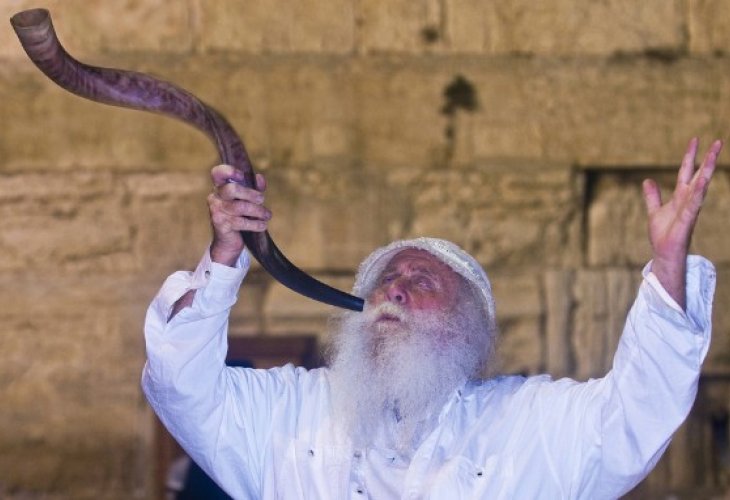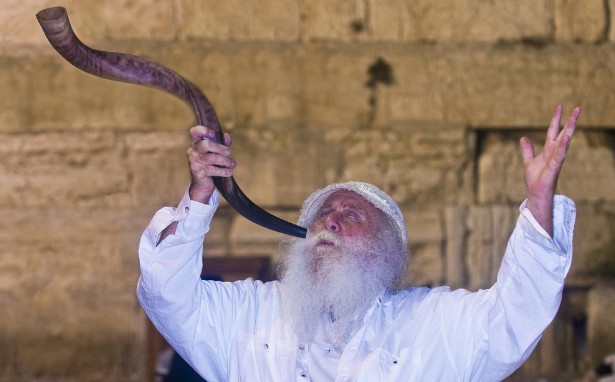Jewish Law
Elul: The Month of Mercy, Forgiveness, and the Call to Return
From the shofar’s cry to heartfelt Selichot, discover the customs and inner meaning of Elul — the gateway to repentance and renewal before the Days of Awe
- |Updated

From Rosh Chodesh Elul onward, we enter the Days of Mercy and Divine Favor (Yemei Rachamim veSelichot). Every person should awaken their heart to repentance, seeking atonement for all sins committed from the day they came into the world — so that they may stand worthy when judged by the King of Kings on the Day of Judgment, Rosh Hashanah.
These days are uniquely suited for teshuvah (repentance), more than any other time of the year, because they are days of Divine compassion and openness.
Reciting Psalm 27
It is customary in many communities to recite Psalm 27 – “L’David Hashem Ori veYishi” (“The Lord is my Light and my Salvation”) every day from Rosh Chodesh Elul until after Simchat Torah, following morning prayers. This practice is considered a spiritual protection and a segulah (merit) to find favor in judgment.
Although this custom is not mentioned in the Shulchan Aruch, the first known written source is the Sefer Shem Tov Katan, which states: “Whoever recites this psalm daily from Rosh Chodesh Elul until after Simchat Torah is assured that he will complete his years in goodness, subdue all accusers, and emerge meritorious in judgment.” (Nitei Gavriel, Rosh Hashanah).
The Shofar Blasts During Elul
The Sephardic and Ashkenazic Customs
Among Sephardim, who begin Selichot from the first day of Elul, the shofar is blown during the recitation of the Thirteen Attributes of Mercy (Yud Gimel Middot).
(See Kaf HaChaim, Orach Chaim).Ashkenazim, on the other hand, blow the shofar every day after Shacharit (morning prayers) throughout the month of Elul. (See Rema, Orach Chaim §581).
The Reason for the Shofar
The Tur explains: In Pirkei deRabbi Eliezer, it is taught that on Rosh Chodesh Elul, God said to Moshe, “Ascend the mountain to Me.”
When Moshe ascended to receive the second Tablets, a shofar was sounded in the camp to prevent another sin like the Golden Calf.
God Himself rose up “with the sound of the shofar” (Tehillim 47:6).
Therefore, our Sages instituted the practice of sounding the shofar every year from Rosh Chodesh Elul — to awaken Israel to repentance, as it says: “Shall a shofar be blown in the city, and the people not tremble?” (Amos 3:6). The shofar also serves to confuse the Satan.
The Inner Work of Hearing the Shofar
The Kav HaYashar (ch. 48) writes: “At the sound of the shofar, each person should awaken their heart to repentance. Let him turn toward the wall and cry out to God with tears and supplication, saying: ‘Be gracious to me, O Lord, King who sits on the throne of mercy...’ Then recite the Thirteen Attributes of Mercy with deep emotion and stir others to repent as well.”
Thus, the shofar in Elul is not just a ritual — it is a call to the soul, urging introspection, humility, and return.

How to Say Selichot
A. The Approach of the Chida
The Chida, in Moreh BeEtzba (Chapter 8), teaches: “The main thing is to recite Selichot properly — with a soft, pleading voice, understanding every word that comes from one’s mouth. Let tears flow over one’s sins, and let the heart tremble before the King of Kings who knows all secrets. One must not scream as if shouting in the marketplace without understanding the words, for such cries are empty noise. Better a quiet tear than a loud but thoughtless cry.”
B. The Approach of Rabbi Chaim Palagi
Conversely, Rabbi Chaim Palagi, in Mo’ed LeChol Chai (ch. 11), defended those who cry out loudly during Selichot: “Their intent is in line with the teaching of our Sages that one of the things which tears up an evil decree is crying out to God. Such cries, if expressed with awe and love, are precious before Heaven — as the Zohar writes, the voice of heartfelt prayer rises above all others and connects a person to both this world and the next. However, it must be done with holiness and sincerity — not out of frenzy or superficiality.”
The Simplicity of the Sincere
The Pele Yoetz beautifully concludes: “Even one who is unlearned and does not understand what he says, should still recite the Selichot letter by letter, word by word — in a voice of pleading and humility — knowing that he is standing before the King of the Universe to confess and seek forgiveness. Let him clothe himself in reverence and trembling.”
A Blessed Beginning
As the month of Elul begins — may we all merit to awaken our hearts, to hear the voice of the shofar within our souls, and to return with love to our Creator.

